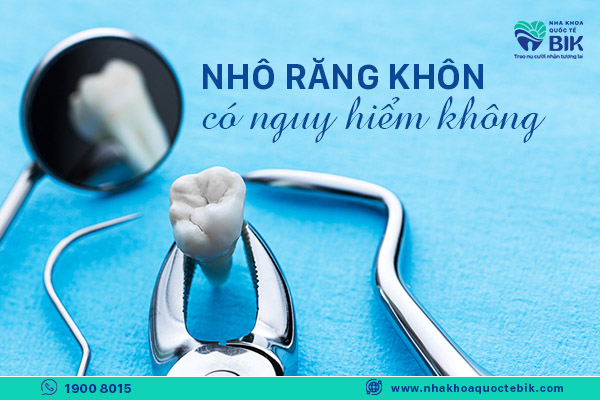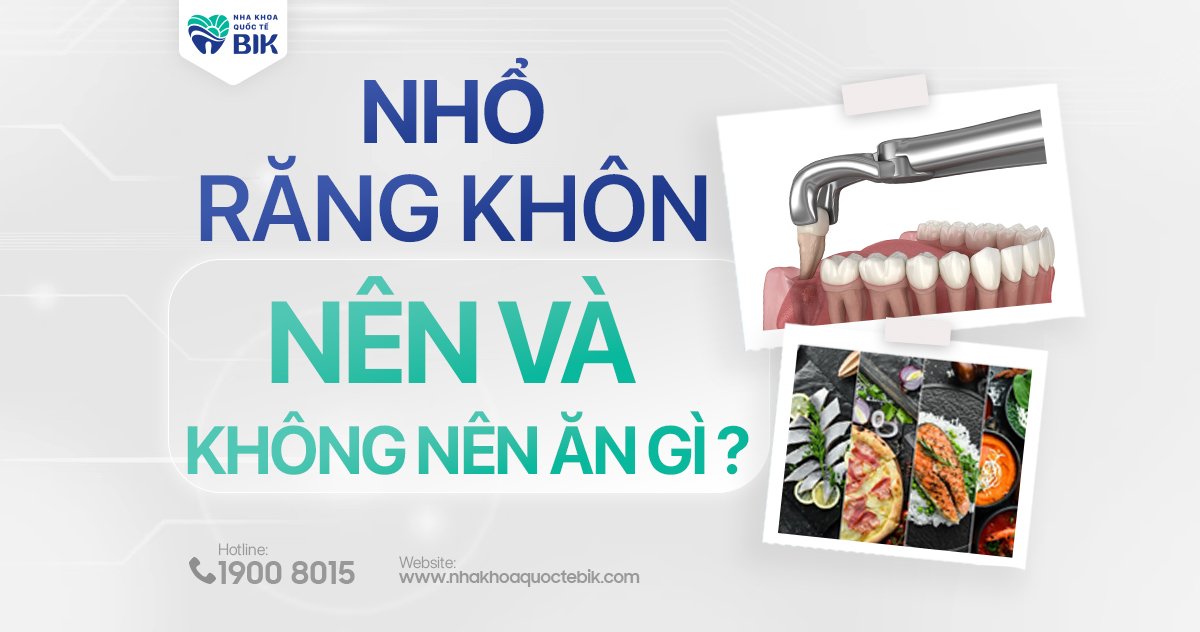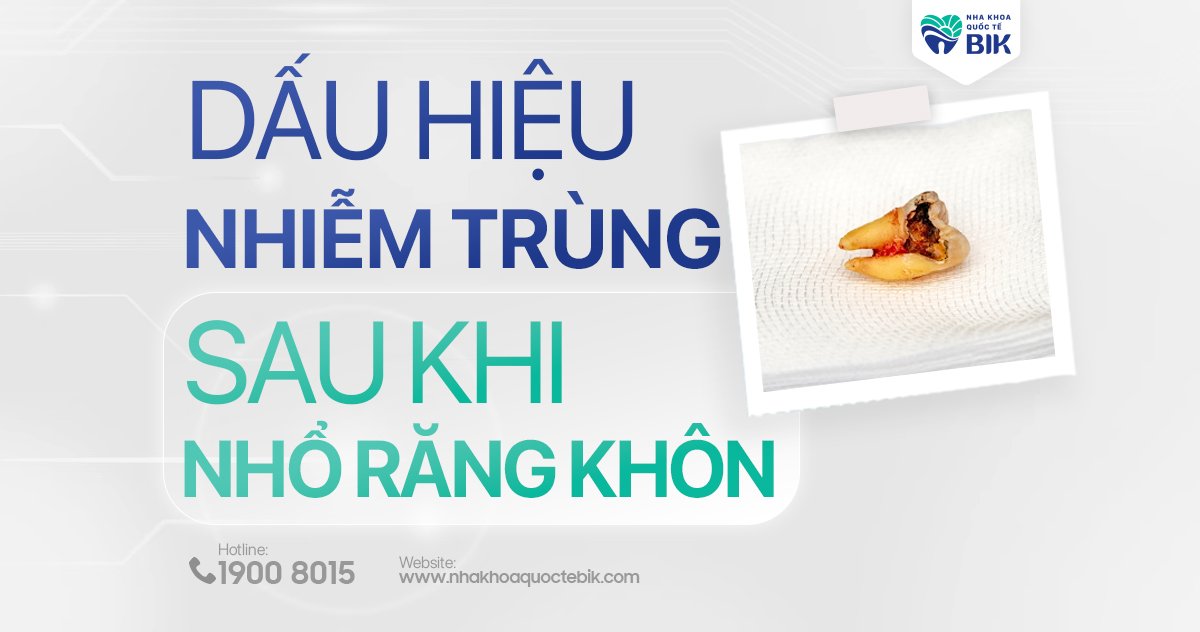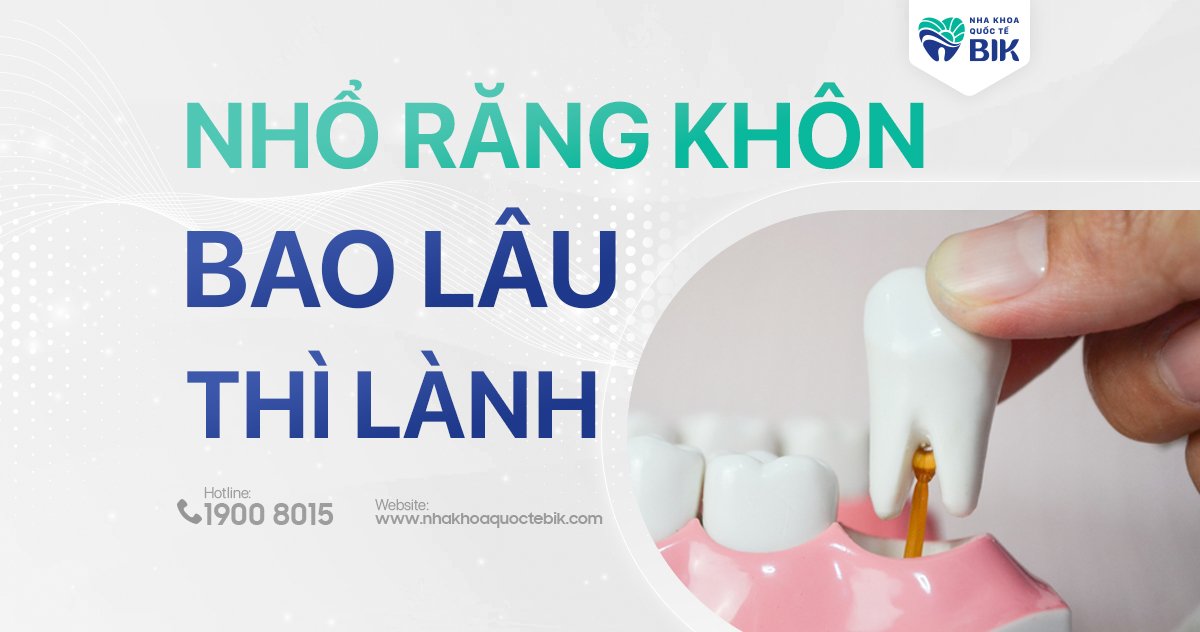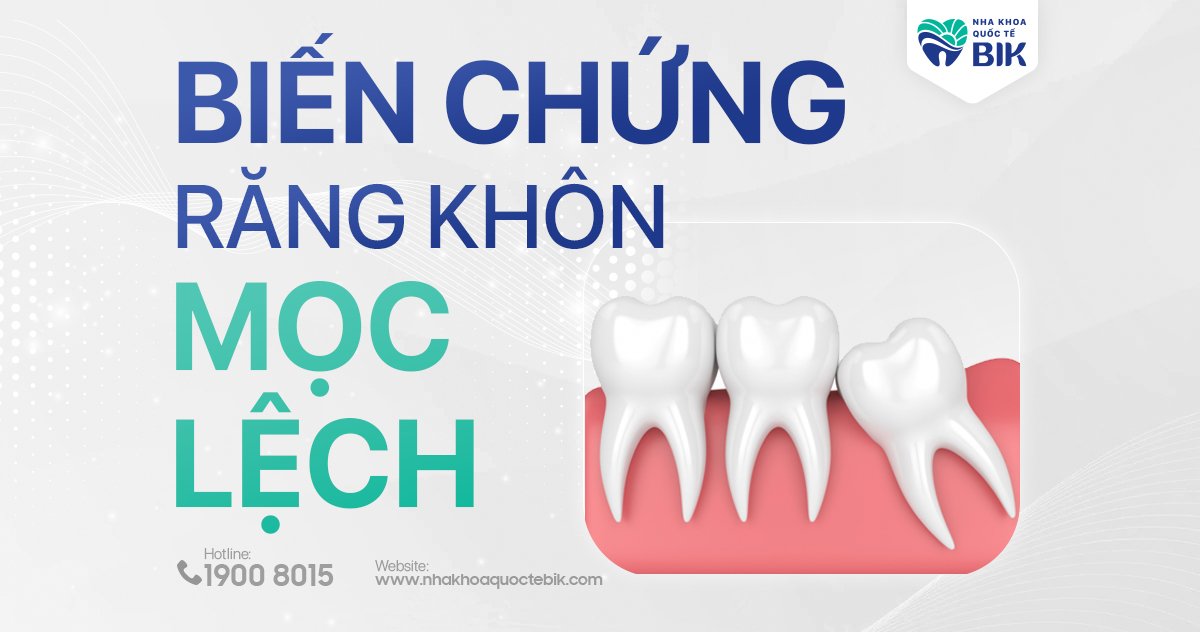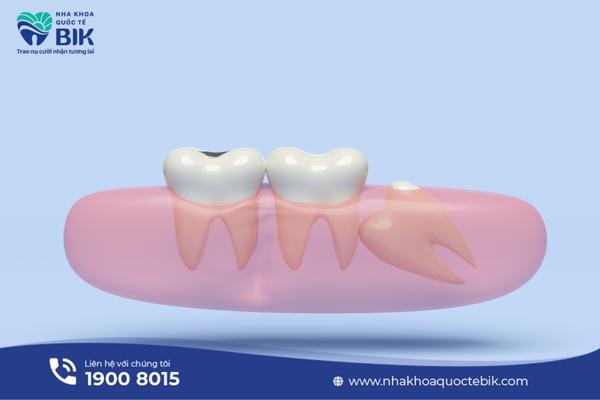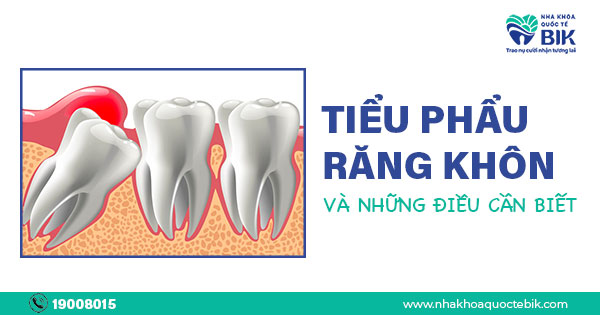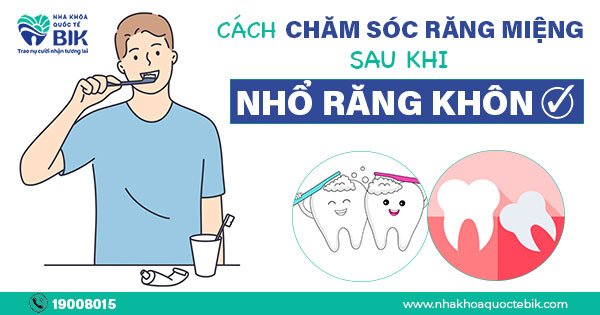
About 2 days after wisdom tooth extraction is when the mouth becomes very sensitive and vulnerable to damage and irritation. Therefore, how to clean the mouth after wisdom tooth extraction is always a top concern to protect the wound from the effects of brushing teeth and thereby recover best.
1. In which cases is wisdom tooth extraction necessary?
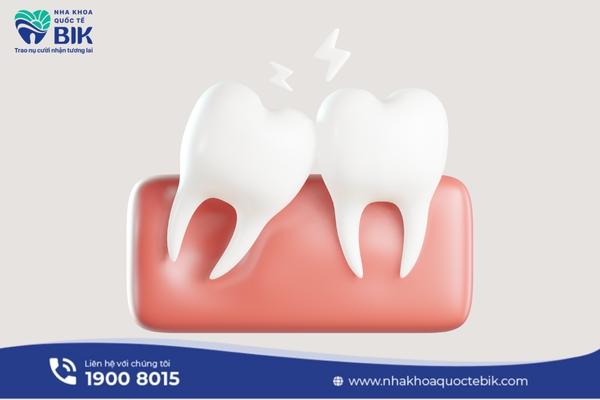
Usually, doctors will prescribe wisdom tooth extraction in the following cases:
1.1. Wisdom teeth grow crookedly, grow under the gum
Wisdom teeth growing crookedly, grow under the gum is quite common and often causes infection. This causes pain and discomfort to appear frequently and last for a long time.
1.2. Wisdom teeth decay
Because they are located in the innermost position, it is difficult to observe and clean, so food can easily get stuck in the wisdom teeth. Gradually, this will be a favorable environment for bacteria to grow and attack, causing wisdom teeth to decay.
1.3. Gingivitis due to wisdom teeth growth
Wisdom teeth often start to grow when the gums have fully developed, are hard and there is not enough space, so they tend to push the gums up. The gums will be sore at this time, if not cleaned thoroughly, it will form an inflammation caused by bacteria from food debris accumulated for a long time.
2. Complications after wisdom tooth extraction
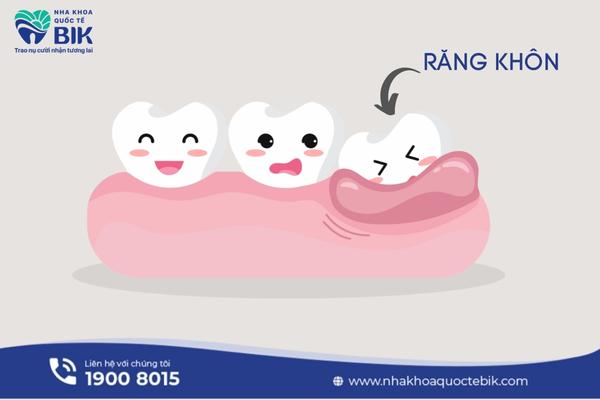
Because wisdom tooth extraction is a technique that requires a high level of doctor skill, if you are not careful you may encounter the following complications:
2.1. Bleeding
The most common complication after wisdom tooth extraction is bleeding at the extraction site. If the bleeding is heavy and cannot be stopped for a long time, you should see a doctor immediately for examination and treatment.
2.2. Injury to tooth number 7
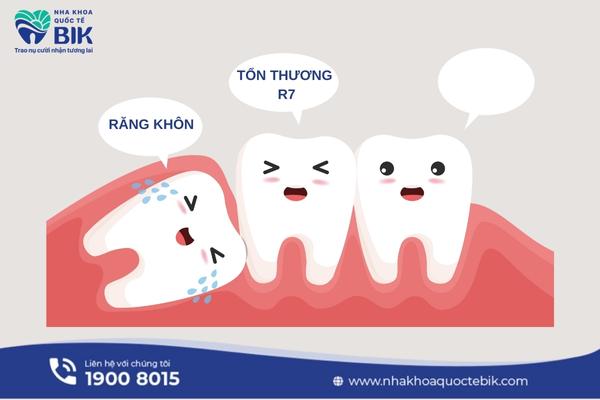
In the case of wisdom teeth growing sideways or growing into tooth number 7, if the wisdom tooth extraction technique is performed using the traditional manual method with too much force, it will easily affect tooth number 7.
2.3. Infection
Because wisdom tooth extraction is essentially a minor surgery, if oral hygiene is not properly maintained, it is very easy to lead to wound infection. Infection is clearly seen through continuous pain, high fever and yellow fluid at the extraction site.
3. Oral hygiene after wisdom tooth extraction
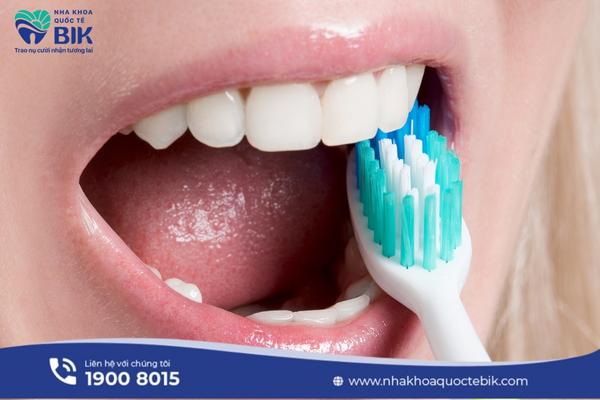
Because the oral cavity becomes very sensitive after wisdom tooth extraction, hygiene is always of utmost concern to help the wound heal quickly.
3.1. Notes on oral hygiene
You should only rinse your mouth with clean water or mouthwash as directed by your doctor. Note that you should not rinse your mouth with salt water after wisdom tooth extraction because it can make blood clotting difficult. About 2-3 days after tooth extraction, you can dilute salt water to clean the oral cavity.
After that, you can use a toothbrush but be careful not to directly impact the tooth extraction site to avoid bleeding.
Use a soft-bristled toothbrush with just enough toothpaste to avoid causing any damage to the surgical wound.
Thoroughly clean the areas between the teeth or tongue that come into contact with food to ensure that bacteria are completely removed.
3.2. Brush your teeth properly after wisdom tooth extraction

– Step 1: Clean your mouth for 30 seconds with plain water or mouthwash to remove any remaining food particles.
– Step 2: Use a soft-bristled toothbrush to brush the outside of the tooth by rotating the brush or brushing along the base of the tooth to avoid damaging the enamel. Brush the chewing surface by placing the bristles parallel to the chewing surface of the tooth, then gently brush from the inside out.
->> It is necessary to control the force just enough and not affect the wound for about 1-2 days after surgery.
– Step 3: Rinse your mouth thoroughly with plain water to remove toothpaste foam and remaining bacteria.
4. Note the diet after wisdom tooth extraction
4.1. Establish a reasonable nutritional regimen
On the first day after tooth extraction, you should only eat soft, easy-to-swallow foods that do not require too much chewing force such as noodles, porridge, yogurt, etc. On the second day, you can eat foods that require moderate chewing force such as soft bread, snacks, etc., but you still need to pay attention to avoid impact on the wound.
About 3-4 days after surgery, you can eat normally again, but you need to pay attention to oral hygiene carefully to avoid infections caused by bacteria in food particles. You should establish a nutritional regimen rich in calcium, vitamins and minerals to support strong teeth and increase resistance to help wounds heal quickly.
4.2. Some foods to limit
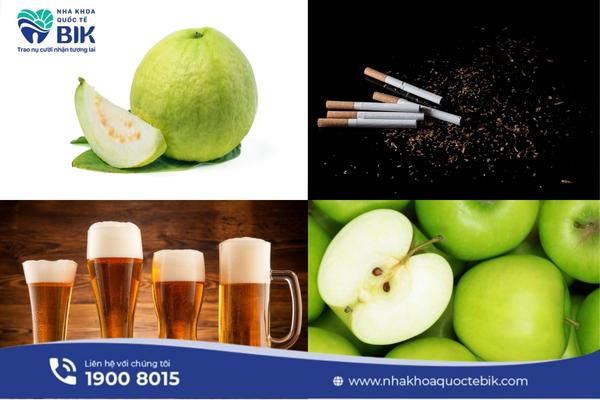
Do not eat foods that are not thoroughly processed, too tough or too hard, causing the jaw to work hard and accidentally injure the wound
Limit foods with too high temperatures to avoid irritating the injured area. Too high a temperature will cause the blood clot to dissolve, causing continued bleeding at the site of the tooth extraction
Stay away from alcohol and tobacco to avoid affecting the sensitive oral cavity
So oral hygiene after wisdom tooth extraction is quite an important issue to note because this is not an easy task. If there are any unusual symptoms during the process of wound care after tooth extraction, you need to see a doctor for examination, consultation and timely treatment.


